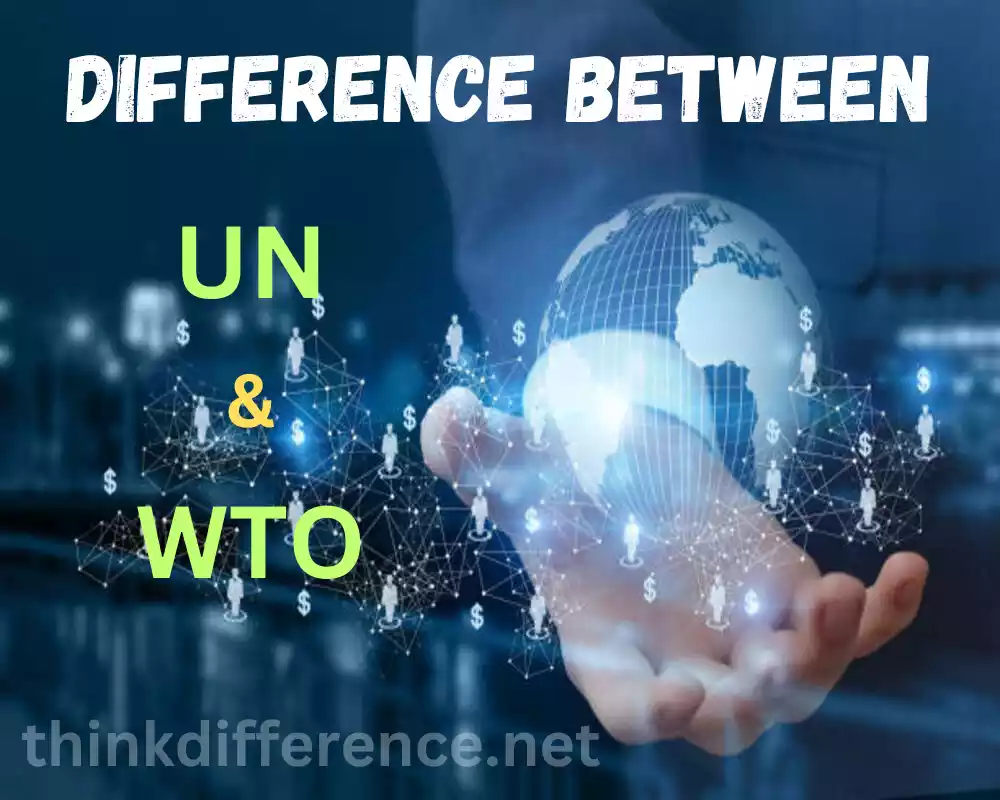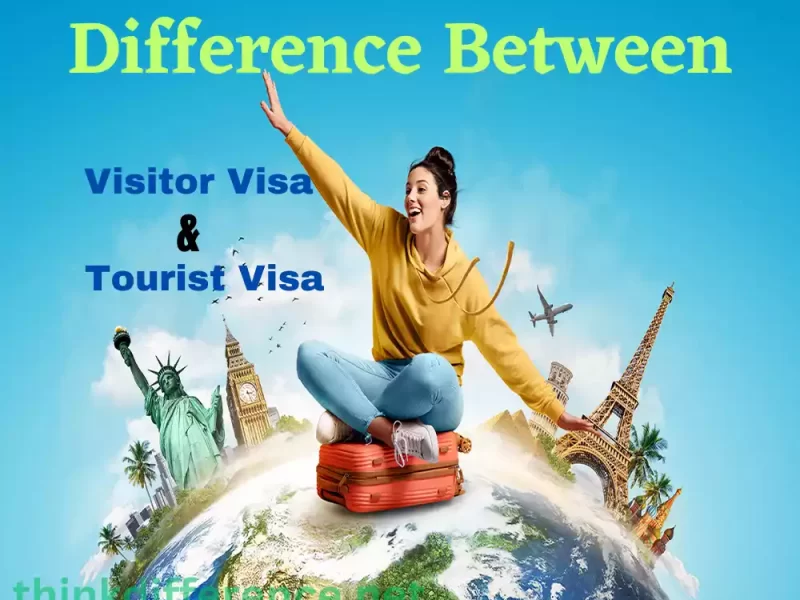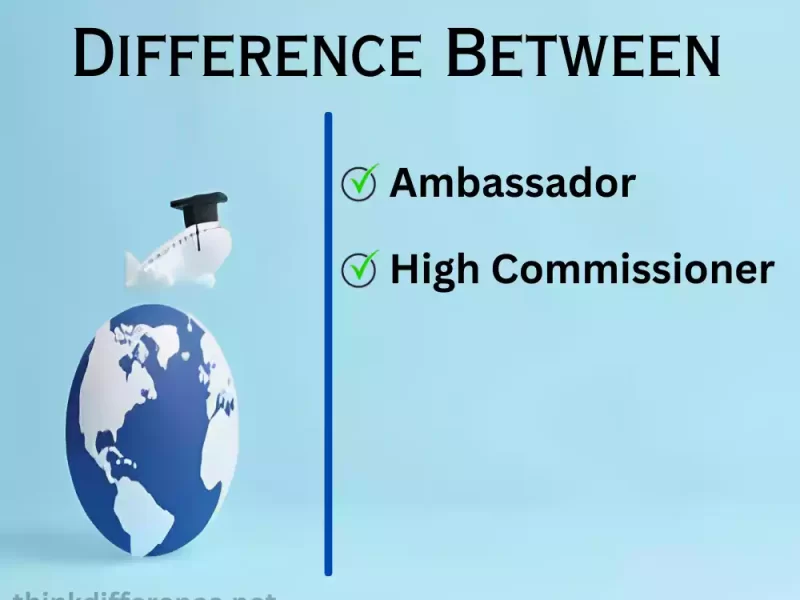UN and WTO are two prestigious Organizations that work collaboratively to foster peace, security and economic prosperity around the globe. This article highlights their partnership in creating a more sustainable and prosperous planet.
Brief overview of the United Nations (UN)
On 24 October 1945, shortly after World War II had ended. An international organization known as the United Nations was founded as an avenue to foster peace, security and co-operation among nations. Since its creation, its primary role has been promoting global cooperation by serving as an arena where member states could meet to address global challenges together towards common objectives – with its headquarters located within New York City but having offices and organizations worldwide.
The United Nations comprises multiple major institutions its General Assembly, Security Council and Economic and Social Council. Their Secretariat and International Court of Justice. Each member state serves in their General Assembly which serves as an international platform for debate and decision making on different global issues; Security Council is charged with keeping peace and maintaining global security with 5 permanent members (China, France, Russia as well as UK/US), plus 10 non-permanent ones.
The UN is a vast collection of roles and responsibilities; from fighting for people’s rights, sustainability and social advancement to responding to natural disasters or crises and helping prevent conflicts or aid peacekeeping operations, among many other duties and functions. They play an integral part in international legal systems and dispute resolution procedures.
Over its many decades of existence, the United Nations (UN) has spearheaded various campaigns and initiatives designed to address pressing global issues, including poverty, climate change and gender equality; health promotion. As well as education promotion. Its membership acts as a forum to foster communication and collaboration, helping members work towards common goals together.
The United Nations operates under principles set out in its charter, upholding sovereignty, peaceful conflict resolution and non-interference with domestic affairs – with freedoms and rights of humanity at their center. Although faced with obstacles to meeting its goals, the UN remains an integral global institution promoting international cooperation while upholding peace and security worldwide.
Brief overview of the World Trade Organization (WTO)
The World Trade Organization (WTO) is an international organisation responsible for overseeing international trading rules between nations. Established on January 1st 1995 as a successor of GATT that had existed since 1948, its head offices can be found in Geneva Switzerland where members can negotiate and supervise global trade deals through this forum.
WTO exists to ease international commerce across borders. Members come together here to discuss issues surrounding trade-related activities and negotiate trade agreements or settle trade-related disputes. Its membership consists of 164 nations worldwide that largely represent all forms of global trading activity.
The WTO operates through several key organizations. The Ministerial Conference brings together all member state representatives for regular discussions about trade issues and takes decisions at regular conferences, while its General Council serves as its main body governing it and accounts for implementation of decisions made through Ministerial Conference meetings. Finally, its Dispute Settlement Body assists members by offering methods for the resolution of trade-related conflicts among themselves.
The World Trade Organisation’s primary functions and responsibilities include encouraging free and fair trade practices by eliminating trade barriers and creating an equitable trading environment. Member nations of the WTO are encouraged to open up trade practices, reduce tariffs and ban discriminatory trade practices as part of this agenda. Furthermore, WTO offers talks related to topics like services trade agriculture IP rights investment.
One of the central aspects that sets The WTO apart from its peers is the dispute resolution process. Should trade disputes arise between members, adjudication offers an effective and formal means to settle these matters through adjudication. The WTO ensures trade agreements and rules are properly applied ensuring an even playing field on global markets.
The World Trade Organization promotes ethical trade practices and strives to make sure all trade is beneficial for member nations – even those with less developed economies – through providing them with opportunities to take part in global commerce systems. It promotes employment growth, economic expansion and development by offering nations participation opportunities within global trading systems.
Although it has at times faced its fair share of critics and issues in its work, the World Trade Organization remains an invaluable global institution that promotes international trade through facilitation of negotiations between member countries as well as helping resolve any potential trade disputes that might arise between members.
United Nations (UN)
The United Nations (UN) is an intergovernmental body established after World War II to foster peace, security and cooperation among nations as well as prevent any future conflict from breaking out. Established on October 24th 1945, its purpose is to maintain global order through co-operation among governments as well as prevent conflicts from developing further.
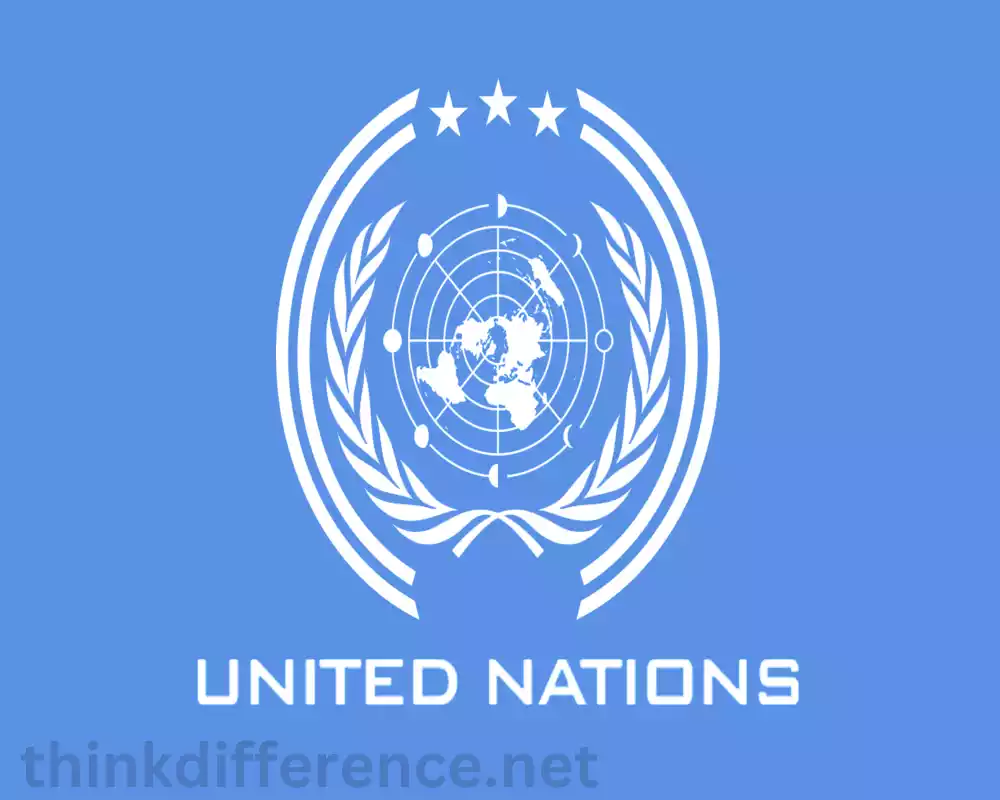
The United Nations provides member nations a forum in which to address global issues, work on common projects and achieve common objectives. At present there are 193 member nations of this international organization and it stands out amongst their competitors as being extremely inclusive and representative.
Structure-wise, UN comprises various organs which make up its foundation:
- General Assembly: Composed of every member state, the General Assembly serves as a forum for discussing global issues. Each country receives one vote with decisions regarding major matters requiring two-thirds majority support.
- Security Council: The Security Council’s primary mission is preserving world peace and security. Comprised of five permanent members with veto power (China, France, Russia as well as United Kingdom and United States) plus 10 non-permanent representatives elected from General Assembly for two-year terms each, its composition ensures peace in any given moment in time.
- Economic and Social Council: ECOSOC exists to address economic and social matters related to human rights, sustainable development and global economic cooperation. It oversees various agencies and programs within the UN system.
- Secretariat: Secretariat (UN), under the direction of Secretary-General, serves as an administrative department within the UN system that assists its organs with their duties while helping facilitate communication among member states and carrying out resolutions from both General Assembly and Security Council meetings.
The UN has a wide range of functions and responsibilities:
- Peace and Security: The UN plays an essential role in preventing conflict as well as mediating disputes and sending peacekeeping troops into conflict zones, striving to maintain international peace and security through diplomatic initiatives and peacekeeping missions.
- Human Rights: The UN works tirelessly to advance and defend universally respected human rights worldwide, publishing a fundamental document which sets out every person’s fundamental liberties and entitlements outlined by its Universal Declaration of Human Rights (UDHR).
- Sustainable Development: The UN promotes sustainable development to address economic, social and environmental concerns. They have devised their Sustainable Development Goals (SDGs) as an ambitious yet achievable set of targets to combat hunger, poverty climate change and gender equality among other concerns.
- Humanitarian Assistance: The UN is responsible for organizing and disbursing humanitarian assistance to those impacted by natural disasters, war conflicts or other crises. They ensure key supplies reach vulnerable groups while aiding long-term efforts at recovering.
- International Law and Justice: The UN works tirelessly to promote rule of law while creating and applying global legal frameworks. At its center is an International Court of Justice which serves to adjudicate between states who belong to its membership. It supports multiple tribunals for prosecuting war crimes as well as crimes against humanity.
Effective and lasting impact of the UN depends heavily upon its membership’s dedication and cooperation, though difficulties and limitations exist. Nevertheless it continues to play an essential role in encouraging international cooperation, confronting global challenges head on, promoting peace and human rights around the globe and encouraging international trade agreements.
World Trade Organization (WTO)
WTO is an international body responsible for overseeing trade rules between nations. Established on 1st January 1995 and replacing GATT since 1948. Based out of Geneva Switzerland.
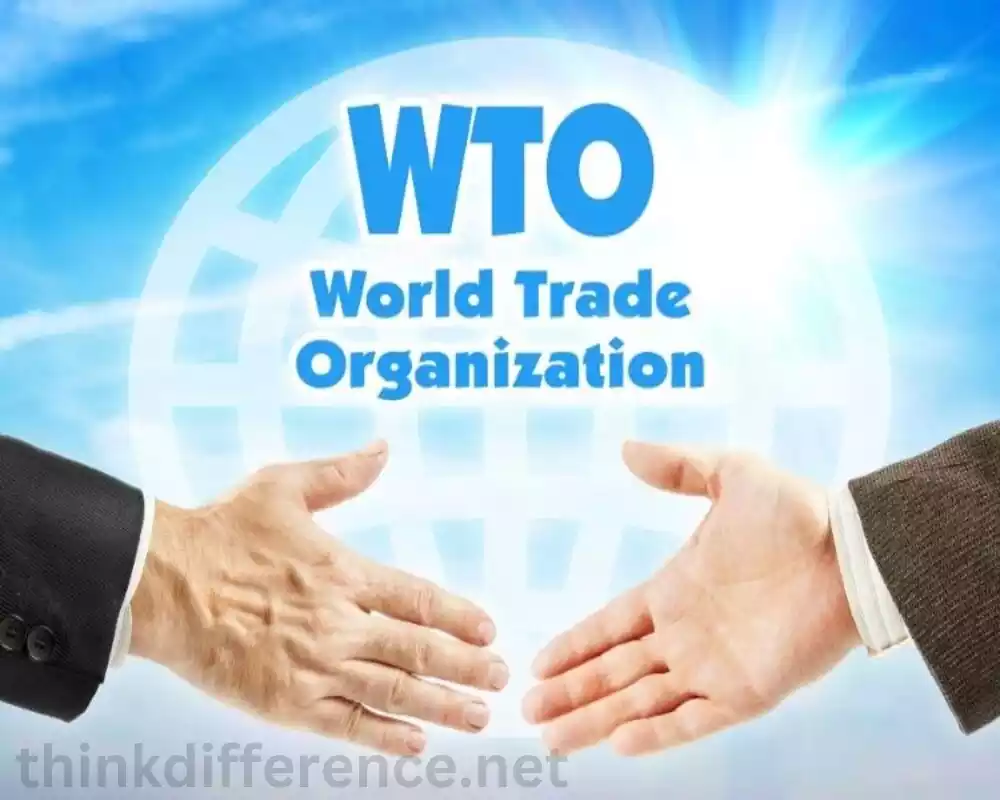
WTO exists to facilitate international trade through creating an equitable, transparent, and predictable trade environment for member nations to discuss trade agreements, resolve trade-related disputes and work cooperatively on issues pertaining to global commerce. It serves as a forum where they can negotiate these trade accords while cooperating in trade related matters among themselves.
Key features of the WTO include:
- Trade Liberalization: The WTO encourages its member countries to eliminate trade restrictions such as tariffs and quotas as well as discriminatory practices aimed at opening global trade in order to create opportunities to further economic development and create wealth for its residents.
- Trade Agreements: The WTO oversees its trade agreement negotiations as well as implementation amongst its member nations, covering a variety of industries in terms of products (General Agreement on Tariffs and Trade – GATT), services (General Agreement on Tariffs and Trade – GATT), as well as IP rights protection (Trade-Related Aspects of Intellectual Property Rights TRIPS). TRIPS agreements cover these industries among others.
- Dispute Settlement: WTO provides an official and legal dispute settlement system which is binding for member nations when it comes to trade disputes between themselves. The WTO’s Dispute Settlement Body (DSB) oversees this system through an organized, transparent process which ensures trade regulations and agreements are enforced effectively.
- Trade Policy Review by WTO: Every three to four years, the World Trade Organization reviews their members’ trade practices and policies to promote greater transparency while encouraging states to live up to their promises by adopting fair trading practices.
- Technical Assistance and Capacity-Building: At the WTO, technical assistance and capacity-building programs for developing countries aim at making international trade more effective by improving knowledge about WTO rules, increasing institution capacity and encouraging inclusive trade growth. These initiatives seek to broaden participation within international commerce among these nations.
WTO membership is founded upon equality and nondiscrimination principles that stem from its core, which includes most-favored nation (MFN) principles as fundamental guidelines. Under MFN principles, members are expected to accord each other equal trading advantages while showing preferential treatment towards all other members based on these laws; such practices encourage fair treatment with no discriminatory practices among trade members.
The WTO operates under an agreement among member states for its decision-making procedure, meaning all decisions are reached collectively. While certain large countries exert greater influence in decision making than others, each nation contributes equally in this decision-making process.
The World Trade Organization collaborates closely with other international bodies, such as the UN, International Monetary Fund (IMF) and World Bank, in order to maintain coherent global economic governance and its management.
Critics contend that the World Trade Organization’s emphasis on market-oriented policies might not provide adequate solutions to environmental and social concerns, yet this major global organization remains at the heart of international commerce by creating its rules of international trade as well as encouraging economic relations between its member nations.
Differences between UN and WTO
There are significant distinctions between the UN and WTO in terms of scope and membership, decision-making processes and authority structures as well as dispute settlement procedures.
Here are the primary distinctions:
1. Scope and Focus:
- UN: The UN encompasses an expansive mandate that encompasses various global issues ranging from peace and security to human rights to climate change mitigation, development planning and humanitarian relief assistance.
- WTO: The WTO’s primary mission is trade regulation and global governance, seeking to enhance global trade while eliminating obstacles in its way.
2. Membership:
- UN: All recognized sovereign states are eligible for membership in the UN. Currently, there are 193 member states.
- WTO: Membership in the WTO is limited to countries or customs territories. As of now, there are 164 member countries.
3. Decision-making Process:
- UN: At the United Nations (UN), all decisions are governed by the “one country, one vote” principle which ensures each member enjoys equal voting rights and that major decisions require at least two-thirds majority.
- WTO: Decision making within the WTO relies on consensus among members. Each nation holds equal decision making authority; however, larger economies tend to wield greater influence due to their financial strength.
4. Areas of Authority:
- UN: The UN has jurisdiction in areas spanning far beyond trade, from security and peace issues, human rights protection, sustainable environmental development and international law compliance – to all these and more, its influence extends.
- WTO: The WTO’s authority is limited to trade issues such as negotiation and implementation of trade agreements, reduction in barriers and solving trade disputes.
5. Dispute Settlement Mechanisms:
- UN: The United Nations relies heavily on mediation, diplomatic negotiations and peacekeeping missions as mechanisms to resolve disputes among member states and prevent conflicts from emerging between nations.
- WTO: The WTO offers an official dispute settlement system comprising panels and an Appellate Body to assist in dispute resolution proceedings. Their dispute resolution mechanisms are legally bind and can be enforced against.
At the same time it’s essential to recognize there exists some unification between UN and WTO. Both organizations play complementary roles within global governance systems and work closely on many matters where their missions overlap, such as trade-related aspects of sustainable growth initiatives and aid to trade initiatives. Climate change mitigation/control issues and poverty. They each play distinct yet complementary roles.
Collaboration between the UN and WTO
The United Nations and World Trade Organization collaborate on various issues that span across their missions. While each have distinct subject matters to cover.
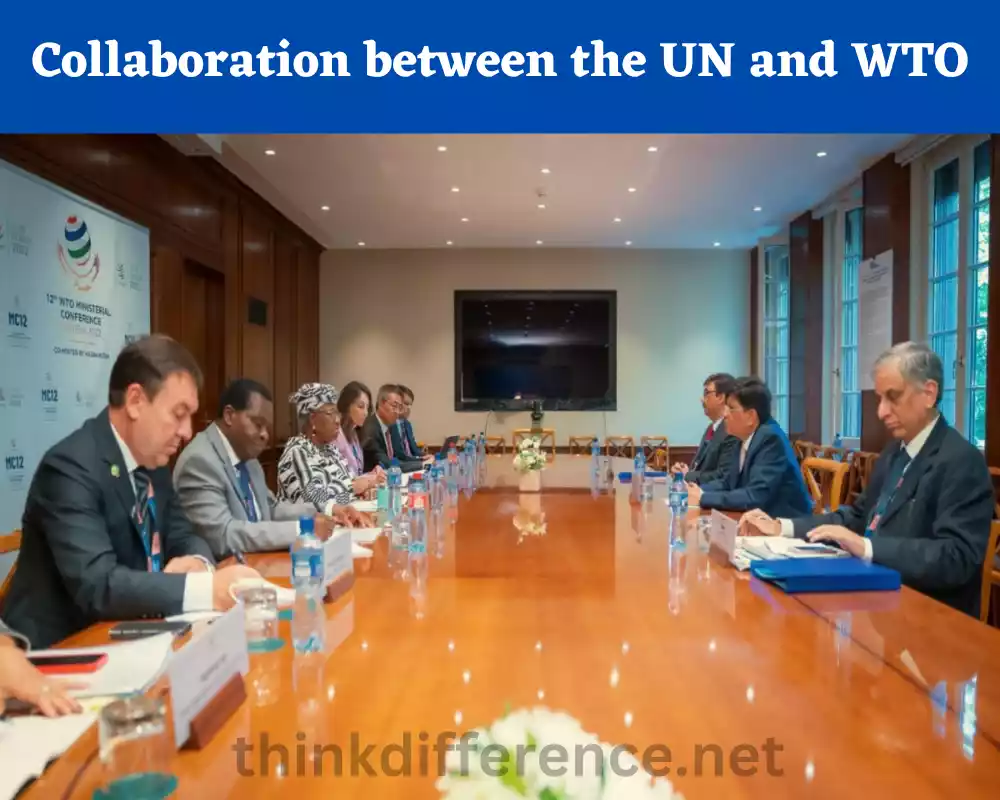
Their efforts often work hand-in-hand on certain projects – here are just a few examples:
- Trade-related aspects of Sustainable Development: The UN and WTO work together to ensure that trade policies and practices contribute to sustainable development goals. They collaborate on integrating trade into sustainable development strategies, promoting inclusive trade and addressing the social and environmental dimensions of trade.
- Aid for Trade: The UN and WTO cooperate on aid for trade initiatives aimed at assisting developing countries in building trade capacity and infrastructure. Collectively, they collaborate to mobilize resources, offer technical assistance and increase participation of emerging nations in global trade systems.
- Global Challenges: Both organizations collaborate on addressing global challenges that have trade implications. Combatting inequality, poverty and climate change is crucial in order to promote economic sustainability. WTO works closely with UNEP and UNDP agencies on these efforts, making sure there is an equitable approach towards dealing with these matters.
- Policy Coherence: The UN and WTO strive to promote policy coherence between trade and other areas, such as human rights, labor standards and environmental protection. They aim to ensure that trade policies align with broader international commitments and goals, fostering a balance between economic growth and social and environmental sustainability.
- Information Sharing and Capacity Building: The UN and WTO exchange information and expertise to enhance their respective capacities. The WTO collaborates closely with UN systems in providing assistance in terms of technical training programs and knowledge sharing initiatives to assist member states, especially developing nations, participate in global trade systems.
Important to bear in mind is the fact that collaboration between UN and WTO does not need to be restricted solely to what has been described above. Given their complementary roles in global governance, both organizations engage in ongoing dialogue and coordination on various trade-related and broader global issues to foster cooperation and ensure coherence in their efforts.
Promoting Sustainable Development
Promoting sustainable development is of utmost concern for both the UN and WTO. While they have distinct roles and approaches, they work together to integrate sustainable development principles into global trade policies and practices.
Here are some ways in which they promote sustainable development:
United Nations (UN):
- Sustainable Development Goals: The United Nations adopted 17 Sustainable Development Goals that outline their plan to address environmental, social and economic concerns in one cohesive manner. Topics addressed within these SDGs range from poverty alleviation and gender equality issues, climate change concerns as well as accessing healthcare and education services.
- Agenda 2030: The UN’s Agenda 2030, adopted in 2015, sets forth a roadmap for sustainable development. It emphasizes the need for inclusive economic growth, social progress and environmental sustainability. The UN encourages member states to align their national development plans with the SDGs and works to mobilize resources and support their implementation.
- UN Sustainable Development Group: The UN has established the UN Sustainable Development Group to enhance coordination among its agencies and programs in implementing the SDGs. This group facilitates collaboration and knowledge-sharing among different entities to promote sustainable development worldwide.
- Climate Action and Environmental Protection: The UN has an important role to play in combatting climate change and protecting our natural environment, through their UNFCCC. Their framework convention is helping achieve global climate goals. Other UN organizations such as UNEP focus on sustainable environmental conservation.
World Trade Organization (WTO):
- Trade and Environment: The WTO recognizes the importance of integrating trade and environmental objectives. It seeks to ensure that trade policies and practices support environmental sustainability. The WTO’s Committee on Trade and Environment discusses issues at the intersection of trade and environmental concerns and promotes dialogue on sustainable trade practices.
- Aid for Trade: The WTO’s Aid for Trade initiative supports developing countries in building their trade capacities while integrating sustainable development principles. It helps countries address trade-related challenges, develop infrastructure, enhance productive capacities and comply with environmental and social standards.
- Trade and Development: The World Trade Organization promotes trade as an essential strategy to foster sustainable economic development and employment creation in developing nations, which help spur economic expansion while alleviating poverty. Through inclusive and open trade policies it fosters sustainable globalization by creating employment opportunities and stimulating economic expansion while alleviating burden of poverty.
- Trade and Sustainable Development: The WTO’s Trade and Sustainable Development Committee focuses on integrating sustainable development concerns into trade policies. It discusses issues such as the impact of trade on sustainable agriculture, fisheries and renewable energy. The WTO also engages in dialogue with other stakeholders, including civil society organizations, to ensure broader perspectives on trade and sustainable development.
By collaborating on issues such as trade and sustainable development, the UN and WTO strive to align their efforts and promote coherence in advancing the global sustainable development agenda. Through policy dialogue, capacity-building initiatives, and knowledge-sharing, they work towards a more sustainable and inclusive global economy.
Enhancing Global Trade
Each organization, the UN and WTO, play an essential role in shaping global trade as well as creating an atmosphere conducive to international economic cooperation. While the former covers issues that span across borders while WTO specializes in trade issues.
Here are a few ways they help enhance our economy:
United Nations (UN):
- Trade Capacity Building: The UN supports developing countries in building their trade capacities through technical assistance, training programs and knowledge-sharing initiatives. Improvement of infrastructures, institutions and regulatory frameworks provides nations with tools they need to become more efficient in international trade.
- Trade-Related Assistance for Development: The UN promotes trade as a driver of development by integrating trade-related considerations into development strategies. Policy measures promoted include those which will ensure trade benefits all people, especially youth, women and other marginalized groups. The UN also works to address the trade-related challenges faced by least developed countries (LDCs) and landlocked developing countries (LLDCs).
- Aid for Trade: The UN encourages donor countries to provide assistance to developing countries in the form of Aid for Trade. This assistance aims to help developing countries overcome trade-related constraints, such as infrastructure deficiencies, limited productive capacities and compliance with international standards. It facilitates market access and trade diversification.
- Sustainable Trade Practices: The UN promotes the integration of sustainable development principles into trade policies and practices. Focusing on the need to balance economic growth with social aspects. The UN encourages responsible and inclusive trade practices that contribute to sustainable development goals.
World Trade Organization (WTO):
- Trade Liberalization: WTO promotes trade liberalization globally by eliminating trade barriers – such as tariffs and quotas – to create an open and stable trading system with greater market access for firms worldwide.
- Trade Negotiations and Agreements: The WTO serves as an arena for member nations to negotiate trade agreements among themselves, through multilateral plurilateral, as well as bilateral talks concerning services, goods, intellectual property rights. Such negotiations create frameworks of obligations and rights among participants while improving trade flows.
- Trade Facilitation: WTO strives to streamline trade procedures and customs formalities with their Trade Facilitation Agreement (TFA). Their objective is to reduce bureaucracy at border crossing points while increasing transparency and efficiency at borders. Lowering trade costs while creating more efficient international commerce.
- Dispute Settlement: WTO provides an official and binding dispute settlement mechanism to address trade disagreements among member countries, providing peace and security when conducting international commerce. This mechanism also ensures trade agreements and rules are enforced correctly – providing peace and stability when conducting global commerce.
- Monitoring and Surveillance: The WTO acts as a watchdog over global trends in trade, policies, and developments through its Trade Policy Review Mechanism. This helps identify potential trade barriers as well as issues and trends which should be monitored closely, whilst encouraging member adherence with commitments.
By working together and complementing one another’s efforts, both the UN and WTO aim to enhance global trade, encouraging economic development while strengthening collaboration across nations and building an inclusive prosperous sustainable trade system for future generations.
Addressing Global Challenges
Each organization, be it UN or WTO, recognizes the necessity of confronting global issues to achieve sustainable development and enhance quality-of-life for everyone around the globe. While their methods differ slightly, both collaborate closely on tackling various global problems simultaneously.
Here are just a few examples:
1. Poverty and Inequality:
- UN: The United Nations through its various agencies such as UNDP and ILO prioritize efforts at combatting poverty by developing inclusive economies, providing essential services, as well as social protection protection to its citizenry.
- WTO: The WTO seeks to reduce poverty through trade as an engine of economic and employment expansion. Their aim is to give emerging nations greater market access while also helping integrate them into global trading networks.
2. Climate Change and Environmental Sustainability:
- UN: UNFCCC/Paris Agreement The UN plays an invaluable role in combatting climate change with their United Nations Framework Convention on Climate Change (UNFCCC) and Paris Agreement, encouraging international cooperation as well as adapting to and mitigating strategies as well as sustainable use of resources.
- WTO: The WTO emphasizes the relationship between environmental sustainability and trade, advocating ethical trade policies which protect our natural environments. It advocates for environmental considerations to be integrated into trade policy decisions as well as supporting environmental-friendly trade in goods and services; all while exploring environmental aspects related to trade.
3. Health and Pandemics:
- UN: The UN, particularly the World Health Organization (WHO), leads efforts to address global health challenges, including pandemics. It coordinates international responses, provides guidance, facilitates access to vaccines and medicines and supports healthcare systems strengthening.
- WTO: The WTO contributes to global health by ensuring the availability of affordable medicines and vaccines through its Trade-Related Aspects of Intellectual Property Rights (TRIPS) Agreement. It supports access to essential medicines and encourages the use of flexibilities in intellectual property rules during health emergencies.
4. Food Security and Agriculture:
- UN: The United Nations includes both The Food and Agriculture Organization (FAO) and World Food Programme (WFP), both dedicated to food security, agriculture development and nutrition. Through sustainable farming initiatives that support small-scale farmers while combatting malnutrition and hunger.
- WTO: The WTO plays an essential role in global food security by encouraging fair and predictable trade in agriculture. It helps overcome trade barriers related to agricultural produce. Promote measures which ensure food security without negatively affecting trade; as well as encouraging the formation of an orderly agricultural trading system with rules-based procedures for trading practices.
5. Digital Divide and Technological Innovation:
- UN: The UN has long prioritized digital inclusion and cybersecurity as key strategies for sustainable economic growth, providing access to ICTs for sustainable development as well as encouraging digital inclusion efforts and providing cybersecurity education programs.
- WTO: The WTO serves as a forum for trade issues related to digital commerce and e-commerce, including cross-border trade in digital technology and commerce, encouraging technological connectivity between nations while aligning trade regulations with modern economic realities while eliminating digital divides between them.
Working collaboratively and coordinating efforts through coordination and collaboration, UN and WTO together are helping address various challenges to sustainable development while taking into consideration their interconnection and impact on wellbeing and prosperity. Their combined efforts strive to foster cooperation between all involved, promote global goals and foster an environment which is beneficial to everyone involved.
Conclusion
UN and WTO play indispensable roles in shaping international relations, fostering economic growth, and promoting global stability and prosperity. Their collaboration in various areas, including sustainable development, conflict resolution, human rights, and trade for development, ensures a coordinated approach to tackling global challenges. As the world continues to face complex issues, the partnership between these two organizations remains essential for creating a more equitable and sustainable future.

